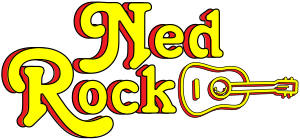The Harder They Come
The Harder They Come (104 minutes) 1973/Rated R – starring Jimmy Cliff, Janet Bartley, Carl Bradshaw, Ras Daniel Hartman, Basil Keane, Bobby Charlton, and Winston Stona. Co-written, produced and directed by Perry Henzell. Originaly released through Thorn EMI Home Video.
When Rosie Perez performed her ‘fly-girl’ moves over the opening credits of Spike Lee’s “Do The Right Thing,” the imagery brazenly introduced the world to a new music form. Hip-hop was in your face and here to stay. Mr. Lee might’ve copped inspiration from the end credits of 1973’s “The Harder They Come,” over which a woman’s swiveling hips shook to a fresh new musical sound called reggae from Jamaica. Upon its release, the film was seen as a powerful introduction to this progressive island beat and opened the door for discovery to artists like Bob Marley and Peter Tosh.
Shot on a budget of $400,000 around the slums of Kingston, the film tells the tale of a poor folk hero who seeks fortune and a singing career. Arriving from the outlying countryside, Ivan Martin (played by reggae sensation Jimmy Cliff) has his belongings stolen at the first street corner he crosses in the big city. Denied employment throughout the town, he labors for a charismatic preacher (Basil Keane) and falls for one of his ardent followers (Janet Bartley). Ivan aspires to become a renowned singer, yet when he records a hit song for the island’s only record producer, the unscrupulous Sir Hilton (Bobby Charlton), the fledgling artist only receives $20. Turning to the pot trade, Ivan becomes a drug runner, but is soon set up to take a fall by a corrupt police detective (Winston Stona). While his hit song climbs the charts and becomes a countrywide smash, Ivan remains on the lam, a renowned legendary hero headed for a final showdown.
The triumph of filmmaker Perry Henzell’s narrative lies not in its originality but instead in its raw presentation. Shooting the scenes in a detached, loose style, the film has the “look” of a documentary, a choice in telling fictional stories that had only been seen up to that point in a few films like “Z” and “Medium Cool.” The unpolished, relaxed characterizations that the actors project appear unrehearsed and natural. Some critics commented on their thespian abilities as being amateurish, but their spontaneity and reserved demeanor give the scenes more authenticity.
Jimmy Cliff gives a solid reading of his notorious outlaw. Appropriately confounded in his adjustment to urban life, prideful of his natural singing talent, and despondent over his eventual predicaments, Cliff shows a progression to character that keeps your interest whenever he’s onscreen. The only false note in his performance comes when he carjacks a Cadillac and the camera lingers incessantly on his forced smiling face as he drives across open fields.
Janet Bartley as his love interest, Elsa, lends a grounded maturity to Cliff’s unfocused scheming. His pals Jose (Carl Bradshaw) and Pedro (Ras Daniel Hartman) are effective in their alternating chummy and ruthless behavior. Only the actors who play the figures of authority, the preacher and the detective, come across as stilted and not very credible in their portrayals.
Music is used to great effect throughout the movie. With contributions from The Melodians, Toots and the Maytals, Desmond Dekker, and four songs by Cliff, hardly a scene goes by without the use of tunes as an integral and transitional part of the narrative. The title song aptly chimes in each time Cliff’s character rises to the next level of notoriety. Although director Henzell claimed that he initially only saw this film being viable to the Caribbean market, it seems he was confident enough to know that the power and originality the reggae sound contained would translate to a broader acceptance. “The Harder They Come” still holds up as a fresh, vivid snapshot showcasing the birth of a new musical genre.
© 2000 Ned Truslow

Comments are now closed.